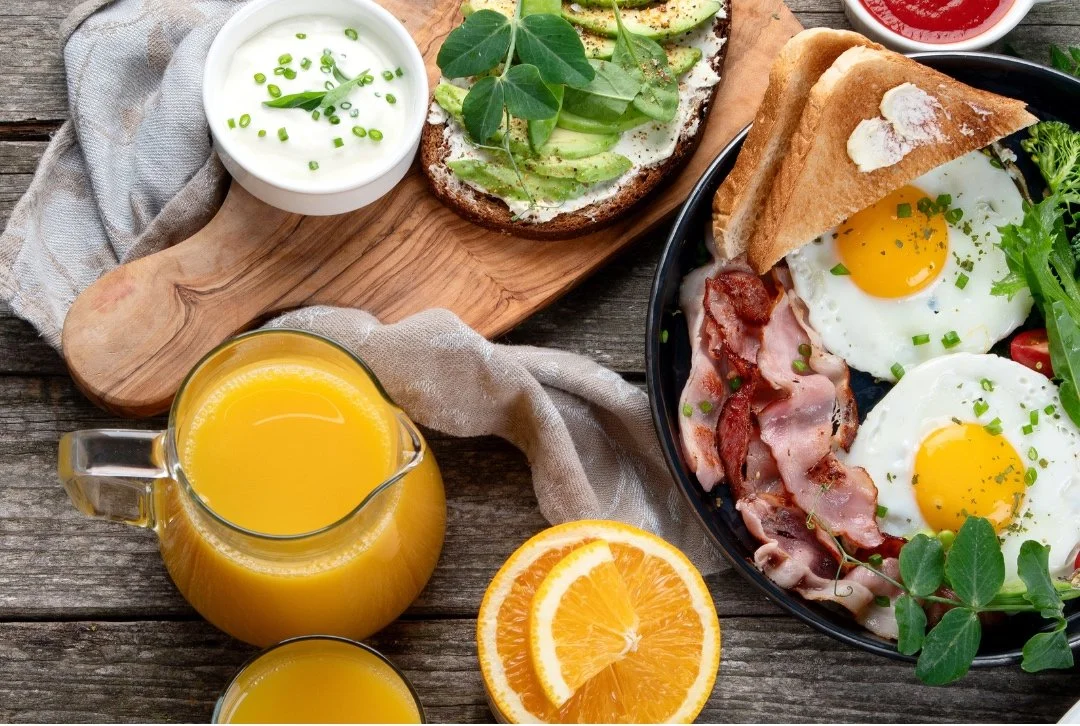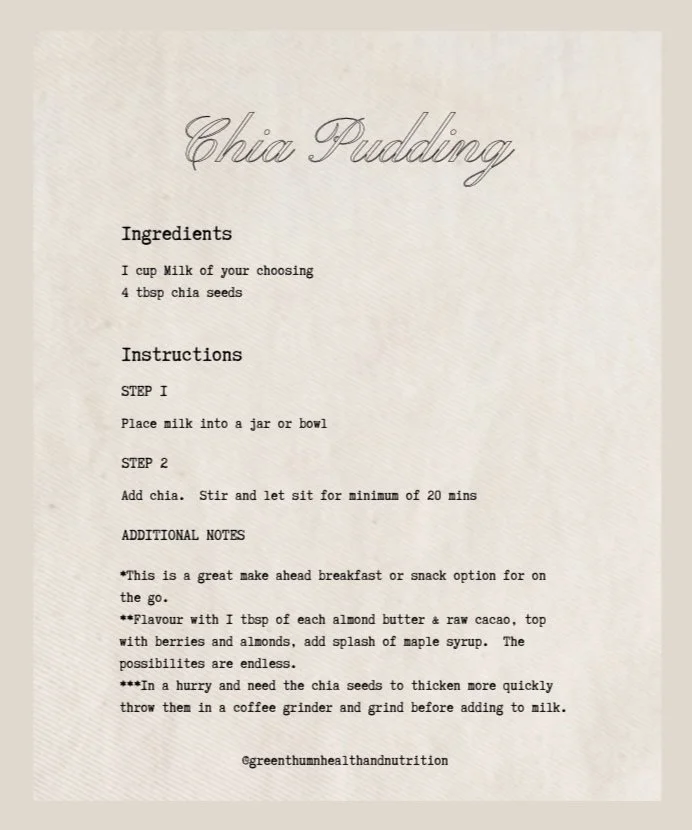Why Breakfast Matters
We have all heard that breakfast is the most important meal of the day. Is this really the case?
In short the answer is YES. What you first feed your body after a period of fasting is incredibly important. It sets you up for the rest of your day. Choosing well for breakfast will help you have more energy, curb cravings, improve your mood, clear up your skin and so much more. You have the ability to take control of your day!
When your body has been fasting all night the first nutrients it is first fed determines what happens for the rest of the day. Often you’ll find people slipping into the habits of eating sugary cereal, toast and jam, pancakes with syrup or a pastry and a coffee. These food are sources of starches and sugar (glucose and fructose); they send us on a glucose roller coaster.
Let’s take a step back here. Why am I all of a sudden talking about glucose. There are so many parts to nutrition. We need to think of these all as tools in a tool box. They all are important for various reasons, for certain people and at different times. We tend to want to use one tool to fix it all right now. That is like a finishing carpenter using a sledge hammer…..
So when are wanting to support our body; manage weight, hormones, cravings, energy and our skin. We want to consider balancing our blood glucose levels through the day. Particularly start of the day! Unfourtunately the affects of food on our body are not immediate like bonking your head or stubbing your toe. Due to the way our body metabolises food mixed with other events in our lives the connections with food is often missed or overlooked; until you start paying attention.
WHAT IS GLUCOSE?
Glucose is our body’s primary source of energy. Each cell in our body uses glucose to function. Plants are able to make glucose using the sun, air and water a process called photosynthesis. Unfortunately, we are not plants. The most common way for us to get glucose is from food; specifically carbohydrates. We have been taught through the world of diet culture to think of “carbs” as starches only. When in fact "“carbs” are starch, sugar and fibre. Each of these further breakdown in our body to glucose or glucose and fructose. They are then stored in our liver and muscles as glycogen for energy later on or fat. Yes I said fat. I will get into this soon in a blog post to come called “Sugar is Sugar”.
WHY ARE GLUCOSE SPIKES A CONCERN
A glucose spike occurs when we give our cells glucose too much too quickly - it piles up! When glucose piles up free radicals are release and some glucose is converted to fat. Free radicals poke holes into the membranes of our cells - creating malfunctioning cells. Repeated glucose spikes contribute to oxidative stress, glycation, inflammation and excess insulin (contributor in type 2 diabetes, arthritis and depression). Short term affects are constant hunger, cravings, chronic fatigue, poor sleep, hot flashes, migraines and much more. Longer term affects are skin conditions, arthritis, dementia, risk of cancer, gut issue, heart disease, polycystic ovarian disease (PCOS), nonalcoholic fatty liver disease and soooooo much more. As you see they are kind of a big deal.
BACK TO BREAKFAST
After fasting all night our body tends to be most sensitive to glucose. Interesting eh! Most of the breakfasts that we eat here in North America are loaded with starch and sugar; inviting us to step onto the glucose roller coaster for the day. These breakfasts high in glucose are a contributor to us feeling like we need an afternoon nap.
The best way to set yourself up for success is to go savoury! Really breakfast is just another meal of the day. Why can’t you start with a salad, a plate with meat, avocado and veggies or even left overs from dinner. Like any meal or snack it should contain a good amount of fibre, protein and fat. Starches and sugars (including fruit) are optional.
I know for some they’re just not there on transitioning to a savoury breakfast. That’s ok. Sometimes you just want those pancakes soaked in syrup, a bowl of oats or a smoothie on the run. Can you have them? I am all about finding balance. Sooo if this is the case I would suggest adding some fibre, fat and protein to help slow the absorption of glucose into your blood stream. For example instead of pancakes swimming in syrup; include an egg or better yet a veggie omelette - eat these first then finish with the pancakes and syrup. What about porridge sprinkled with brown sugar. First off leave the brown sugar out, then pop a dollop of nut/ seed butter or coconut oil in while you are cooking and top it with some nuts and seed, cinnamon, cacao and even berries for a little sweetness. Even better try making chia pudding instead.
Breakfast eater or not; the first meal of the day sets the tone for the rest of the day. Start thinking savoury over sweet and include FIBRE-PROTEIN-FAT to set you up for a day of regulated energy, improve you mood and lower your cravings!
Do you have question or curious how to start? Send me an email or check out our services. I would love to help!
RESOURCES
Book: Glucose Revolution by Jessie Inchauspe
Disclaimer
The entire contents of this website are based upon the opinions of Green Thumb Health & Nutrition. Please note that Green Thumb Health & Nutrition is not a dietitian, physician, pharmacist or other licensed healthcare professional. The information on this website is NOT intended as medical advice, nor is it intended to replace the care of a qualified health care professional. This content is not intended to diagnose or treat any diseases. Always consult with your primary care physician or licensed healthcare provider for all diagnosis and treatment of any diseases or conditions, for medications or medical advice as well as before changing your health care regimen.




